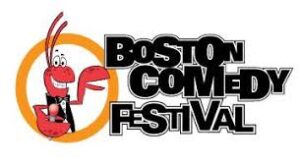The following piece appeared in the Jewish Journal: The Crucible: Arthur Miller deals with his own demons in play by Bernard Weinraub.
The Crucible: Arthur Miller deals with his own demons in play by Bernard Weinraub.
By Matt Robinson
Nearly every American student has read a play by Arthur Miller at some point in their academic career. “The Crucible” is perennially one of the most-produced plays in schools across the country and “Death of a Salesman” has been back to Broadway many times.
Even so, there are many parts of Miller’s life that remain a mystery. Perhaps most profound of these is the fact that, for much of his later life, he denied the existence of a son who had Downs Syndrome, only realizing towards the end of his life that he had made a tragic mistake and, in some ways, been a hypocrite.

In the play “Fall” (which is being performed at the Huntington Theater in Boston through June 16), New York Times writer and international playwright Bernard Weinraub puts a slightly theatrical spin on a story he first found in 2007 and, in the process, allows critics and fans alike the opportunity to learn a bit more about the artist many think they know.
Though he may be best known for his work in the Times, Weinraub maintains that he had “always been interested in playwriting” and explains that, as Miller and Tennessee Williams were “the major American playwrights of the time,” he had a long-time interest in Miller that went beyond his work.
“When I was a kid,” he recalls, “I loved to go the theater! As soon as I was old enough, I went to see Broadway plays.”
His interest in writing led Weinraub to pen short stories starting at the age of eight and to develop his creative side however he could. Taking courses in theater at CCNY with a teacher who was “very encouraging,” Weinraub was assigned to the military paper while in the Army and eventually found himself serving as a copy boy at the Times.
“They probably call them “copy people’ now,” he muses. “It was a different time.”
Another element of this difference that plays into his play involves how people with disabilities are treated. In Miller’s time, it was not so shocking to have family members with mental or physical challenges institutionalized and many families erased all records of them, just as Miller apparently did. That is why Weinraub is so eager to suggest that his play is not intended to damn to demean the great artist who has inspired so many.
“The play is in no way a demonization of Miller,” Weinraub asserts, “It’s a sad story that tries to understand both Miller and his wife [photographer Inge Morath], and it’s a tragic story.”
Instead of pointing a finger at Miller for apparently treating his own son in this way, Weinraub hopes to explain the situation so that viewers can perhaps come to understand Miller’s motivations.
“I want people to understand his pain and his shame at the time,” Weinraub explains, noting that Miller had recently taken years away from his work to care for then wife Marilyn Monroe and was therefore reticent to give over so much of himself to anyone, even a child.
“Erasing a child is hard to understand,” Weinraub admits, “but Daniel came along at a time when he had had years with Marilyn Monroe and had stopped writing because he was caring for her and keeping her form the edge of self-destruction and to help her endure her pain.”
As MIller was apparently aware of the sacrifices that might be involved with caring for his son, Weinraub suggests that there may not only be themes in the story that can be seen in Miller’s works, but also in works that may have inspired him, including the Old Testament.
“There are elements of sacrificing the son and father’s forgiving sons and paying the price for it and other Old Testament themes,” Weinraub says of his play, “but that’s my take on it. It’s not what Miller wrote.”
In fact, Weinraub suggests that, while he wrote about themes that are often interpreted as “Jewish,” Miller was not a “Jewish playwright.”
“He was Jewish,” Weinraub says, citing performances of “Salesman” featuring Biran Dennehy and Philip Seymour Hoffman that are as authentic as Lee J. Cobb’s Broadway version or Dustin Hoffman’s televised turn, “but his themes were not particularly Jewish themes.”
In fact, Wienraub notes, Miller once said “I am not a Jewish playwright; I’m a playwright who is Jewish!”
Jewish or not, the moral themes and questions raised by “Fall” shine a new light on this famous footlighter.
“He was called the moral voice of the American stage,” Weinraub recalls. “So there was this contradiction between what he wrote and what he believed. I was interested in the whole contradiction and exploring that.”
www.huntingtontheatre.org


